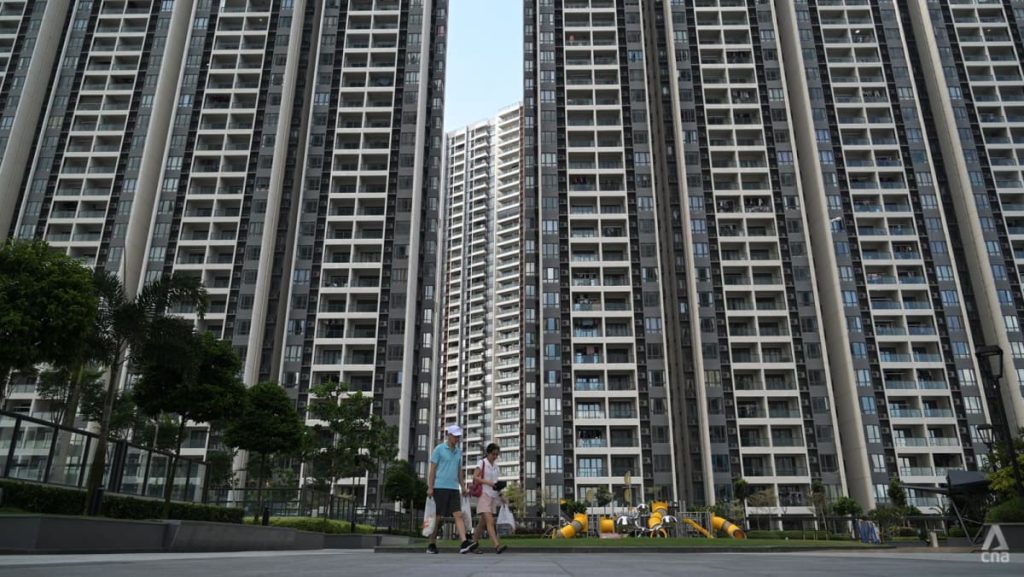The allure of affordable housing and a more relaxed lifestyle is drawing a growing number of Singaporeans across the Causeway to purchase property in Johor Bahru (JB), Malaysia. Individuals like Ong, who owns a private condominium in Singapore, are finding solace in the significantly lower property prices and the promise of a higher quality of life. The attractive sea views and comfortable living arrangements in JB offer a stark contrast to the cramped and expensive housing market back home. While acknowledging the potential for returns on investment through both capital appreciation and rental yield, many Singaporean buyers, like Ong, emphasize that their primary motivation is not solely financial gain. They view the purchase as a lifestyle choice, a chance to escape the pressures of Singapore’s high cost of living and enjoy a more spacious and leisurely environment.
However, venturing into the Johor property market is not without its pitfalls. Several legal disputes have arisen between Singaporean buyers and Johor developers, raising concerns about ownership rights and contractual obligations. Cases involving developers like Country Garden have highlighted the risks of fraud and misrepresentation, underlining the importance of due diligence and careful consideration before committing to a purchase. Furthermore, past experiences of Singaporean investors paint a mixed picture of success. Some have expressed regret, citing challenges such as an oversupply of housing, difficulties in securing tenants, and the fluctuating exchange rate between the Singapore dollar and the Malaysian ringgit, all of which can impact potential returns on investment.
Financial influencer Loo Cheng Chuan, a Singaporean who recently purchased a semi-detached home in JB’s Mount Austin area, offers a pragmatic perspective on the cross-border property trend. He cautions against viewing such purchases primarily as investments, emphasizing the potential for capital depreciation due to the strengthening Singapore dollar against the Malaysian ringgit. Loo argues that even if property values in Johor appreciate, the gains may be offset by the currency exchange fluctuations. Instead, he highlights the significant improvement in quality of life as the primary benefit. The ability to afford a larger landed property, offering ample space for his family, is a key driver for his decision to invest in JB. This perspective underscores the shift in motivation from purely financial gains to lifestyle enhancements, driven by the affordability and spaciousness that Johor offers.
The stark contrast in housing costs between Singapore and Johor is a major catalyst for this cross-border property trend. Property analyst Tan points out that the monthly rental for a two-room HDB flat in Singapore can exceed S$1,000, equivalent to approximately RM3,500. This same amount could easily cover the monthly mortgage payments for a landed property in Johor, providing a significantly larger living space and a more relaxed lifestyle. This cost differential makes JB an attractive option for Singaporeans seeking affordable housing solutions, particularly in the face of rising property prices in their home country.
The pressure of Singapore’s high cost of living is a recurring theme among those choosing to invest in Johor property. Ong, for example, cites the exorbitant property prices in Singapore as a major obstacle to owning a retirement home. He also highlights the lower cost of groceries in JB as an added incentive. This cross-border shopping for everyday necessities further illustrates the cost-saving strategies employed by Singaporeans seeking to stretch their budgets. The affordability of everyday living expenses, coupled with the lower housing costs, contributes significantly to the appeal of JB as an alternative residential option.
Loo echoes these sentiments, acknowledging the global phenomenon of rising asset prices. He emphasizes the need for both Singaporeans and Johoreans to adapt to these changing economic realities. The pursuit of affordable housing and a higher quality of life is not limited to Singaporeans; it’s a shared aspiration across the region. The increasing interconnectedness between Singapore and Johor, facilitated by improved infrastructure and transportation links, further strengthens the appeal of cross-border living. The ability to maintain close ties to Singapore while enjoying the benefits of a more affordable and spacious lifestyle in JB makes this a compelling proposition for many. This trend highlights the dynamic interplay of economic factors, lifestyle choices, and regional integration in shaping the future of housing and cross-border communities.

